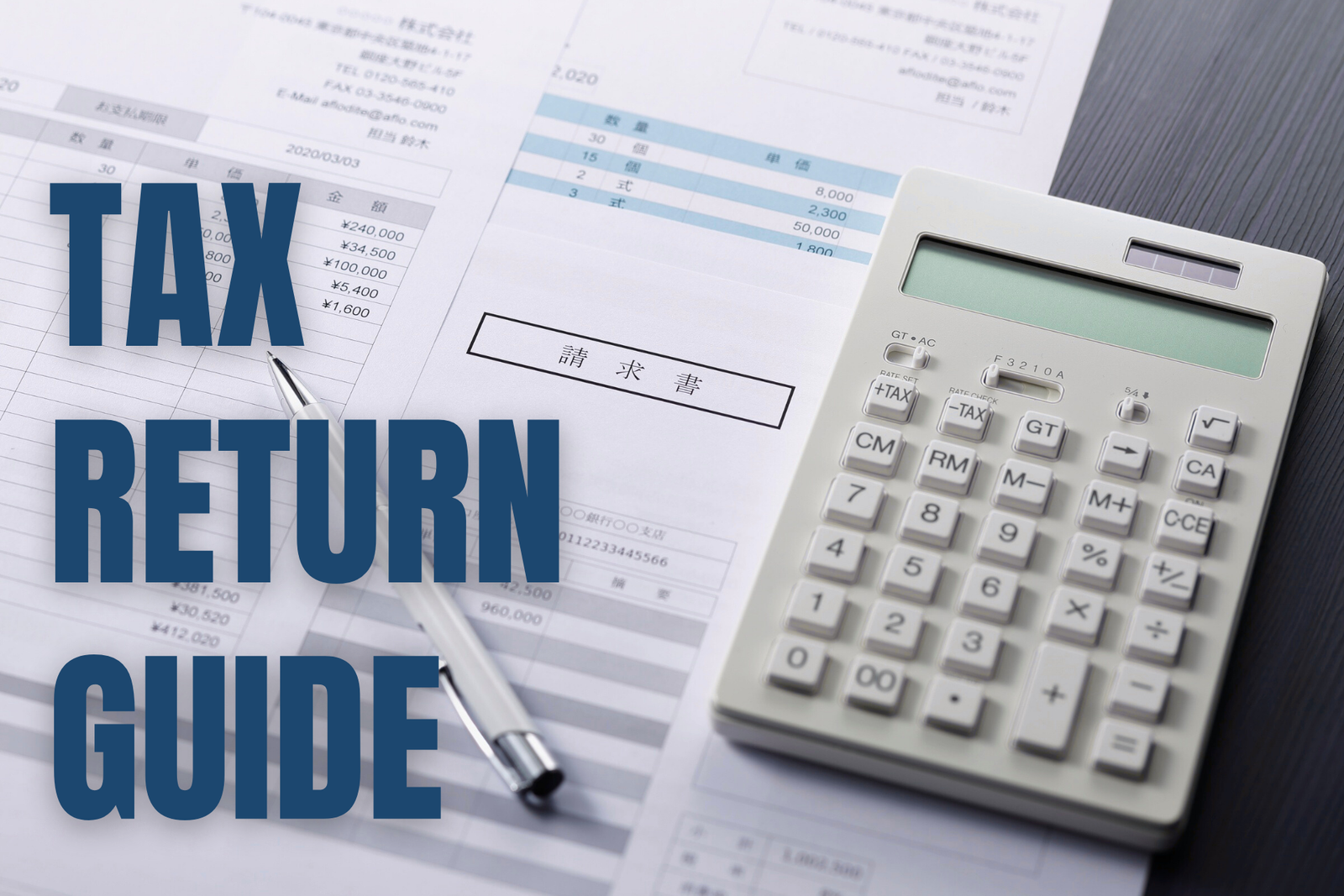Tax return 2025 guide
Tax Return 2025 Guide: Deadlines, Credits, and Filing Tips for U.S. Taxpayers
Tax season can feel stressful, with new tax laws and updates to filing deadlines and inflation levels each year. The plus side? It does not have to be stressful if you are prepared.
Welcome to this Tax Return 2025 Guide for U.S. taxpayers who want a detailed, straightforward, and pragmatic walkthrough of the coming tax season.
Tax Return 2025 Guide has everything you need to know whether you file your return on your own or with the assistance of a professional, including important filing dates, filing requirements, tax brackets, deductions, credits, and step-by-step tips to help maximize your return and avoid costly errors.
1. Key Tax Deadlines in 2025
Keeping track of IRS deadlines is critical when it comes to filing taxes. Missing these deadlines could cost you interest and penalties.
- Start of Tax Season: The IRS plans to begin accepting 2024 tax returns in late January 2025.
- Filing Deadline (Tax Day of 2025): Tuesday, April 15, 2025.
- Extension Deadline: If you filed for an extension, you have until October 15, 2025 to file your tax return.
Tip: Filing your return sooner rather than later could save you the stress of filing at the last minute and will help prevent tax-related identity theft.
2. Who Needs to File a Tax Return?
Most U.S. citizens and residents with income above a certain level must file taxes. Your requirement to file depends on:
- Filing Status: Single, married filing jointly, head of household, etc.
- Age: Under or over age 65.
- Gross income: Wages, self-employment, investment income, etc.
Filing Thresholds for 2025 (Approximate)
- Single under Age 65: $14,900
- Married Filing Joint under Age 65: $29,800
- Head of Household under Age 65: $22,200
Even if your income is lower than these thresholds, you still may want to file to claim refundable credits such as the Earned Income Tax Credit (EITC).
3. 2025 Tax Brackets and Rates
The federal income tax system is progressive, which means that individuals are taxed at higher percentages on the higher amounts of income they earn. The IRS has announced new tax brackets for 2025 to reflect inflation.
The tax rates for the year 2025 are:
- 10%: Lowest bracket
- 12%
- 22%
- 24%
- 32%
- 35%
- 37%: Highest bracket
For instance, a single person making $60,000 in 2025 will pay 10% on the first $11,000 of income, 12% on the income between $11,001 and $44,725, and 22% on the income between $44,726 and $60,000.
4. Standard Deduction for 2022
The standard deduction is a cut to your taxable income for taking the deduction. Most taxpayers will choose the standard deduction instead of itemizing their deductions.
The 2025 tax amounts for the standard deduction are (approximately):
- For single persons: $14,900
- For married persons filing jointly: $29,800
- For a head of household: $22,200
If your eligible expenses exceed these amounts (e.g., mortgage interest, medical bills, etc.), you might be better off itemizing your deductions and arguing that this will yield more savings.
5. Tax Credits and Deductions Explained
Tax credits and tax deductions lower your tax bill in fundamentally different ways:
- Tax credits reduce a taxpayer’s liability dollar-for-dollar – e.g., receiving a $1,000 tax credit actually saves you $1,000 in your tax liability at the end of the year.
- Tax deductions reduce your taxable income – for example, receiving a $1,000 tax deduction will save you $1,000 based on your tax bracket, too.
Here are some common tax credits in 2025:
- The earned income tax credit (EITC) is available for workers with low to moderate incomes.
- The child tax credit (CTC) is available up to $2,000 for each qualifying child.
- American Opportunity Tax Credit (AOTC) for $2,500 for certain education expenses.
- Saver’s credit for contributions to retirement plans.
The most common tax deductions include:
- The interest on a mortgage.
- The interest on student loans.
- Medical expenses that exceed 7.5% of your AGI.
- Charitable contributions.
6. Filing Options: Which One is Best for You?
By 2025, you will have multiple options for filing your taxes, such as:
- IRS Free File: Available if your adjusted gross income is below a threshold established by the IRS.
- Tax Software (TurboTax, H&R Block, etc.): These are designed to be user-friendly and helpful for individuals who want to prepare their own tax returns.
- Tax Professionals/ CPAs: Especially good if you have a complex filing situation such as self-employment income, investments in stocks, bonds, and mutual funds, or property rentals.
- Paper Filing: Still permitted, but it will undoubtedly be slower, less secure, and less efficient than filing electronically.
Recommendations: Generally, if you’re comfortable with it, e-filing with a direct deposit is the fastest, safest, and most efficient way to file your taxes.
7. Step-by-Step Guide to Filing Your 2025 Tax Return
Here is a practical process to assist you with approaching tax season:
- Assemble Your Documents: Gather your W-2s, 1099s, investment statements, mortgage statements, and other relevant documents. These documents will have different designations and appear on various tax forms.
- Select Your Filing Status: Choose single, married, married filing jointly, etc.
- Select Standard Deduction vs Itemizing.
- Calculate Your Taxable Income.
- Apply Credit & Deductions.
- Determine Your Tax Liability or Refund.
- Prepare to question whether you would like to file online or through a tax professional.
- Track Your Refund: Once you have submitted your return, you can set up an account on “Where’s my refund?” on the IRS to track it.
Refunds & Payments in 2025
1. Refunds: Most refunds will be reported within 21 days of filing your tax return – if you e-file and initiate a direct deposit of your refund.
2. Payments: If there is a balance due and you want to make a payment, you can pay via:
- IRS Direct Pay (bank transfer),
- Debit or credit card,
- In the form of an IRS installment agreement.
9. Common Mistakes to Avoid
- Missing deadlines or filing late
- Incorrect social security numbers
- Forgetting side income from independent or gig work
- Claiming ineligible dependents
- Overlooking tax credits, like EITC
- Not signing the return
Quick Fix: Double-check all your entries before submitting your return.
10. How to Prepare for Next Year’s Taxes
Smart tax planning will also begin before tax filing season. Here’s how to get ready:
- Be sure to check your withholding on your paycheck so you are not left with surprises.
- Contribute to an IRA to get a tax break.
- Keep any records of charitable contributions and qualifying medical expenses.
- If necessary, be sure to track side-hustle income throughout the year.
FAQ’s
When Can I Start Filing My 2025 Taxes?
You may start filing once the IRS opens tax season in mid or late January of 2025.
Can I still file taxes if I miss the deadline?
Yes, but you may face penalties. Ideally, sooner rather than later, file as soon as possible.
If I made under $10,000, do I still need to file taxes?
Not always, but if you choose to, you may benefit from refundable credits.
How do I check my refund status?
You may check your refund status online through the IRS “Where’s My Refund?” tool.
Conclusion
There is no reason for the tax experience to be a stressful one if you are prepared. This Tax Return 2025 Guide identifies the essential tax deadlines, updates from the IRS, and tax credits, deductions, and options for filing for each taxpayer in the U.S.
Whether you are filing for the first time, dealing with self-employment income, or seeking the maximum credits for your family, the biggest benefit for you will be your advanced planning to ensure a smoother tax season. Use e-filing, keep good records, and if in doubt, always consult a tax professional.
Remember: Proper planning with your taxes can give you more money, save you time, and stress.





